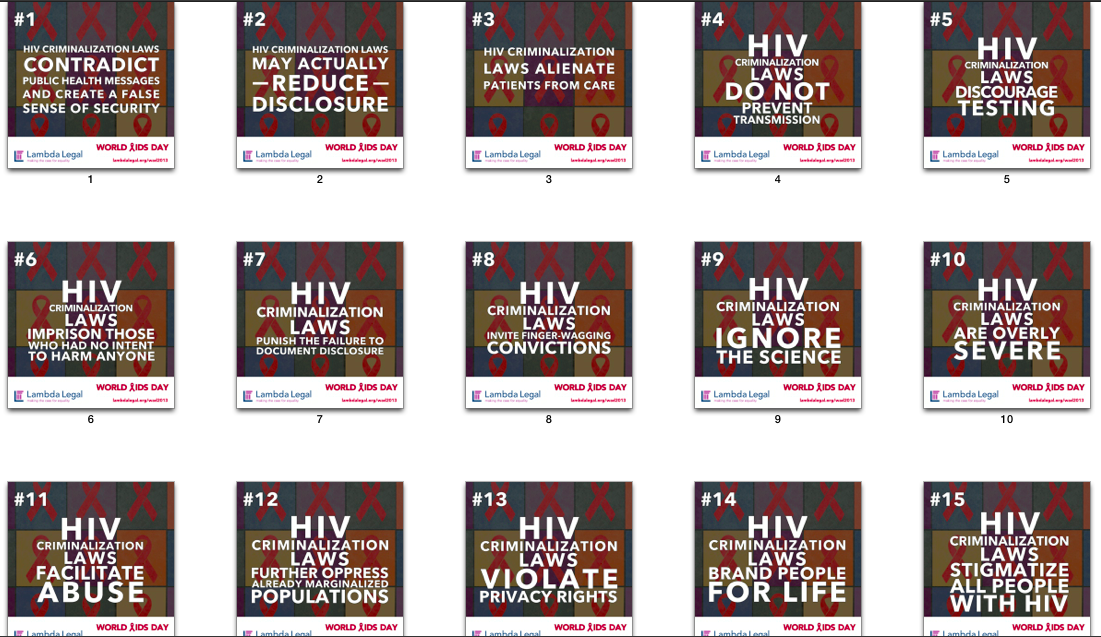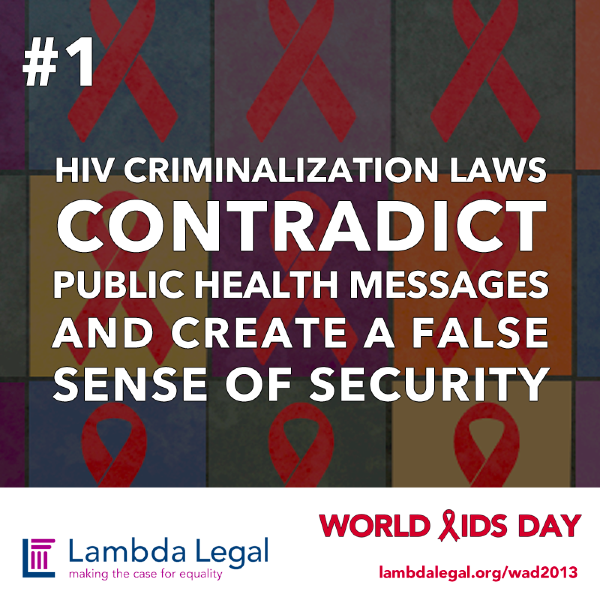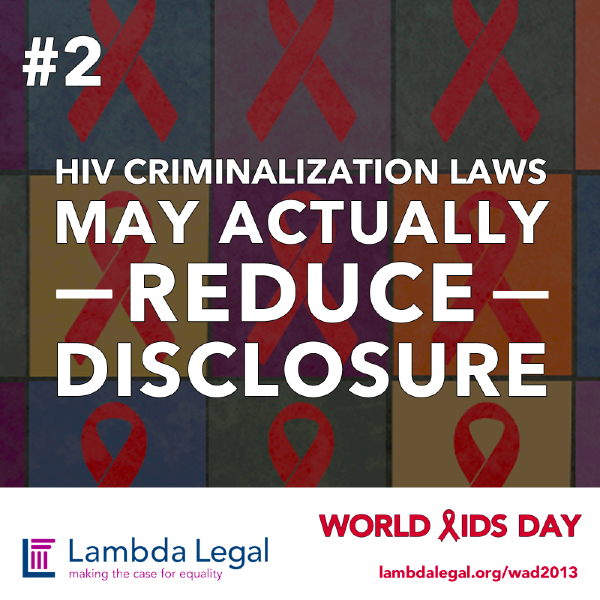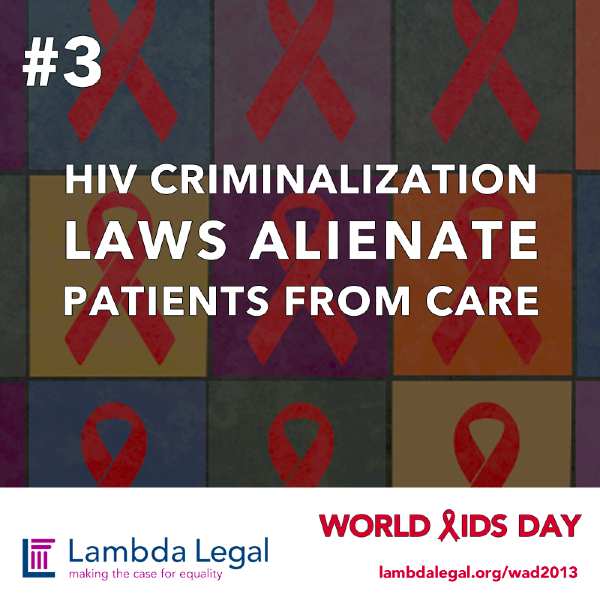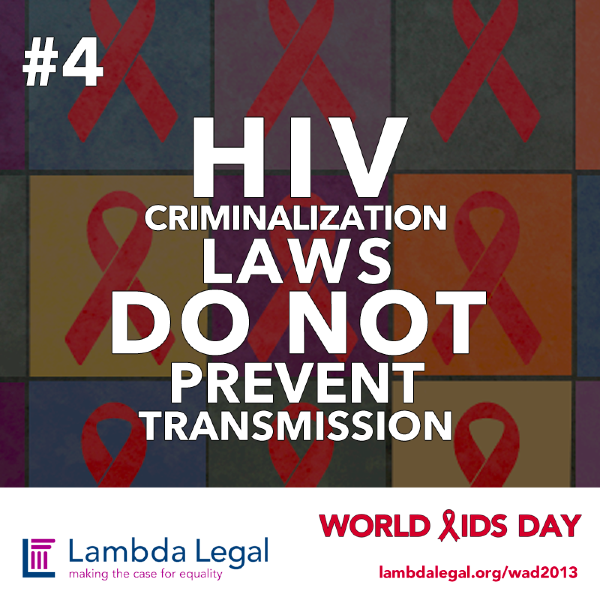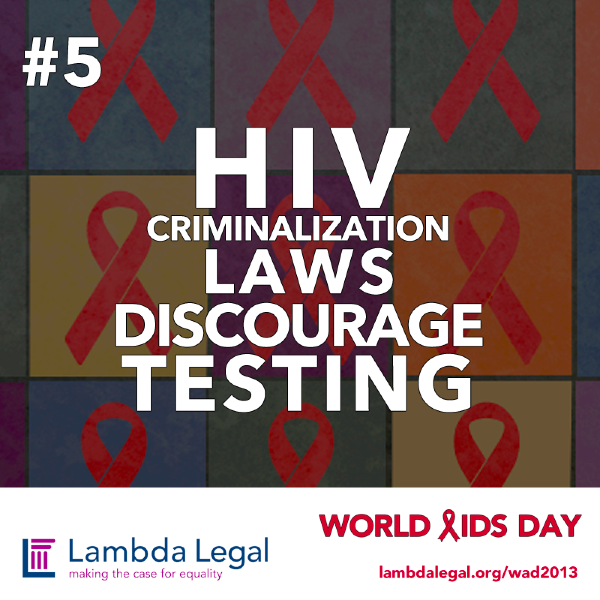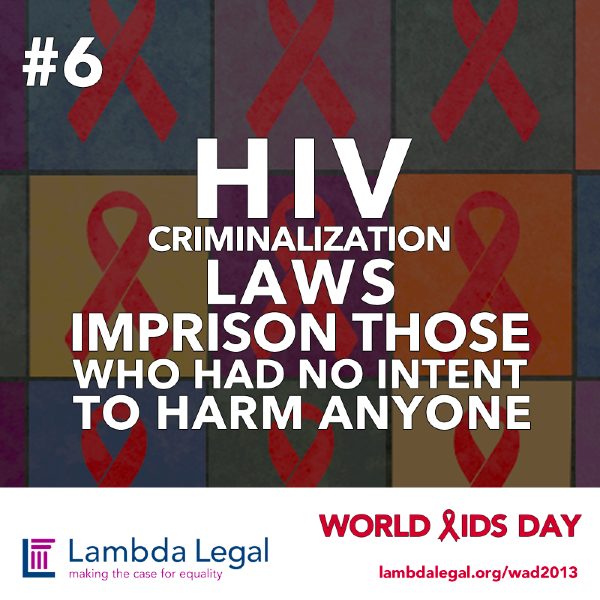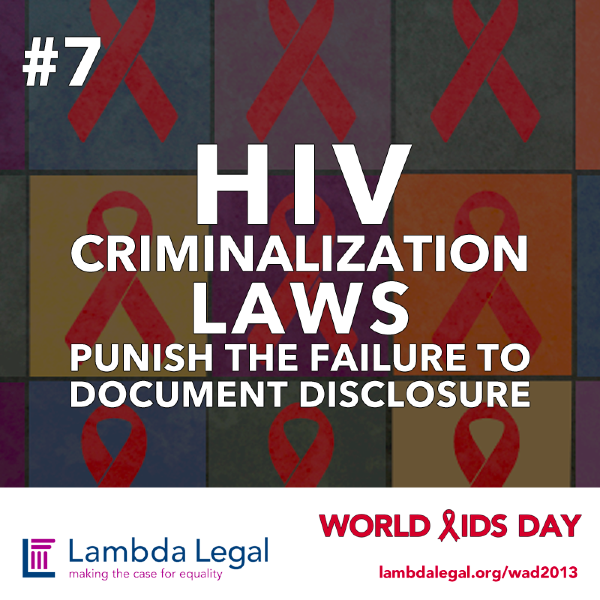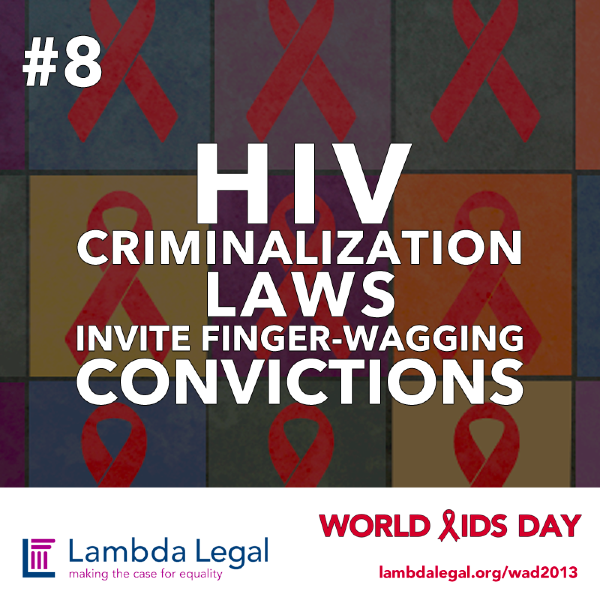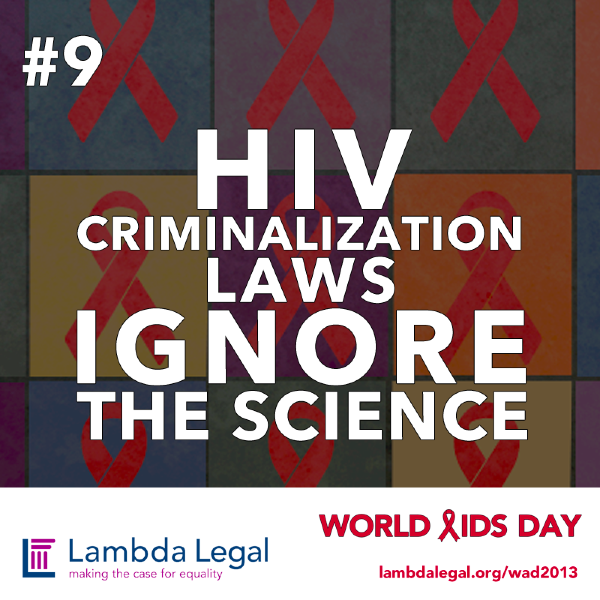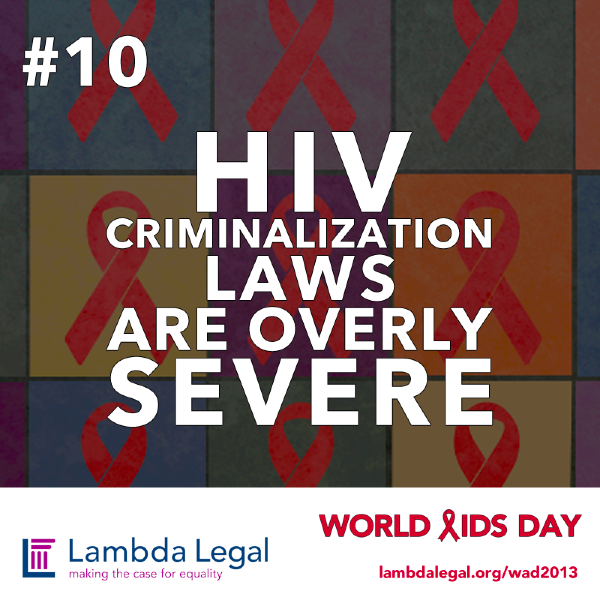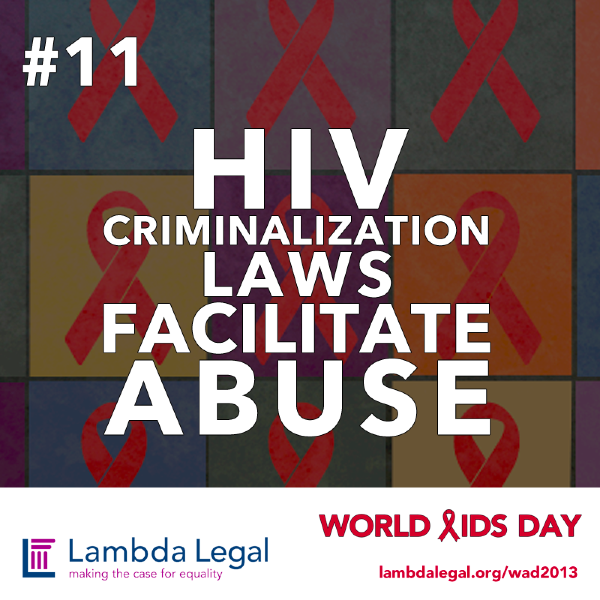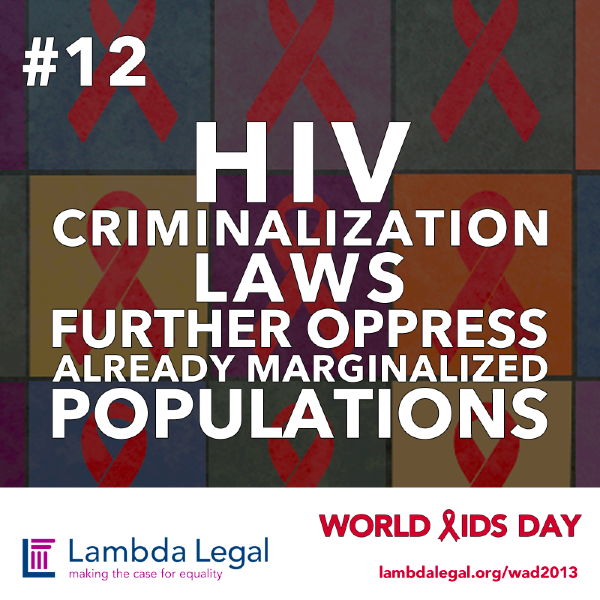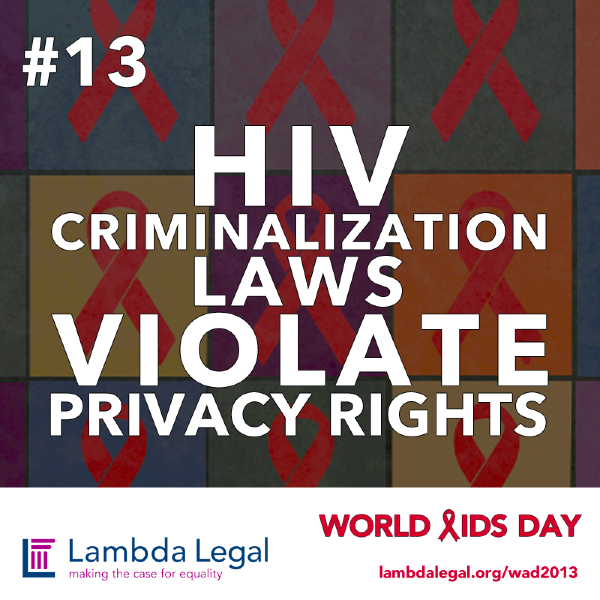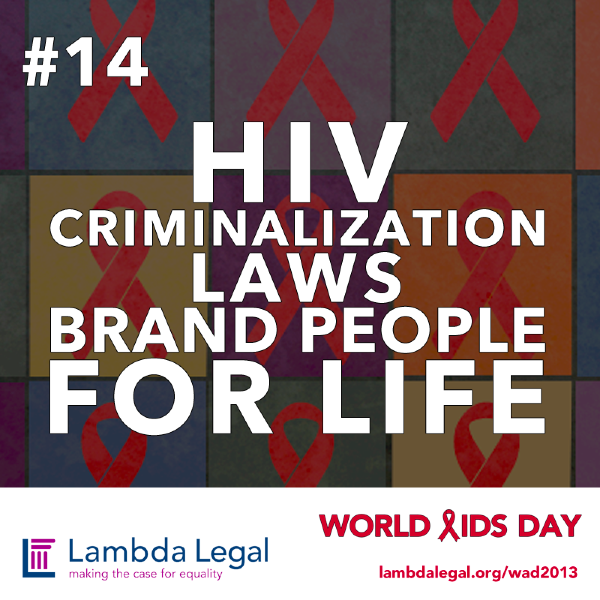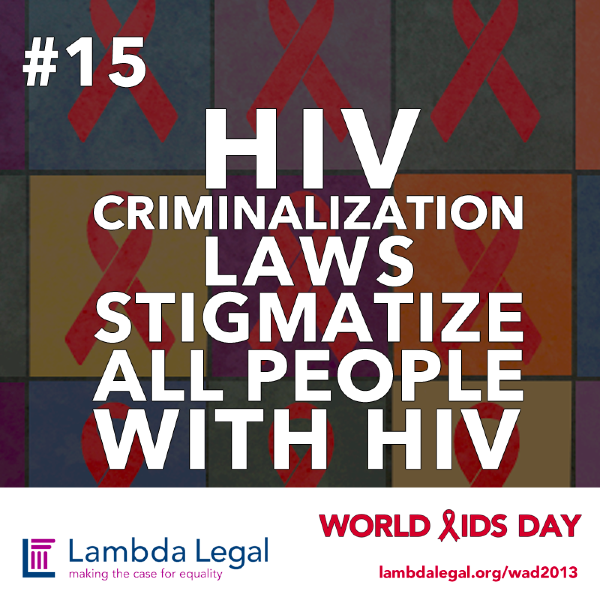For World AIDS Day 2013, Lambda Legal created a social media campaign on Facebook and on its own blog highlighting all the different ways the overly broad HIV criminalisation laws in the United States harm public health, result in unjust prosecutions, and serve primarily to stigmatize and oppress people living with HIV.
Here, for the first time, are all 15 images and captions collected together. The 15 ways can also be downloaded as a one page factsheet from the Lamba Legal website.
HIV criminalization laws harm public health because they contradict public health messages regarding shared responsibility for safe sex and create a false sense of security regarding a partner’s HIV status (“if he has HIV, he has to tell me”)
HIV criminalization laws harm public health because they may actually reduce disclosure: if you might land in jail after telling someone your status, you may be disinclined to share that information, especially on the second (or later) encounter.
HIV criminalization laws harm public health because they alienate patients from care: information from healthcare providers is often used to prosecute, creating distrust in the provider-patient relationship and reducing opportunities for counseling.
No studies show that HIV criminalization laws promote healthier sexual interactions or help prevent the transmission of HIV.
HIV criminalization laws harm public health because they create a disincentive to HIV testing: if you don’t know your status, you can’t be prosecuted.
HIV criminalization laws result in unjust prosecutions because intent to transmit is not required to prosecute, which means people are imprisoned who had no intent to harm anyone and did not, in fact, place their partner at any risk of transmission.
HIV criminalization laws result in unjust prosecutions because it is extremely difficult to prove disclosure—such conversations most often take place in private and are not documented.
HIV criminalization laws result in unjust prosecutions because convictions may be strongly influenced not only by jurors’ moral disapproval of casual sexual encounters but also an incorrect assessment of the risks both sex partners assume in that circumstance.
HIV criminalization laws result in unjust prosecutions because these laws ignore the science: an undetectable viral load is as effective as condoms in preventing transmission, yet neither is incentivized under most of these laws; and in prosecutions involving allegations of transmission, the state need not prove the defendant was the source of infection.
HIV criminalization laws result in unjust prosecutions because the punishments are completely disproportionate to any purported harm, with lengthy jail terms imposed even in cases of no real risk of transmission and no actual injury of any kind.
HIV criminalization laws serve primarily to stigmatize and oppress people living with HIV because they can be used as a coercive tool by the HIV-negative partner, who may threaten a false accusation and/or arrest and imprisonment if the HIV-positive person doesn’t follow an abuser’s orders.
HIV criminalization laws serve primarily to stigmatize and oppress people living with HIV because they further oppress already marginalized populations: sex workers are made felons, and those whose immigration status is dependent on a clean criminal record are subject to deportation.
HIV criminalization laws serve primarily to stigmatize and oppress people living with HIV because confidentiality may be compromised: nothing prevents a potential partner from telling whoever they want about the person’s HIV status, possibly leading to further stigma and illegal discrimination.
HIV criminalization laws serve primarily to stigmatize and oppress people living with HIV because convictions ruin individual lives: a felony conviction followed by incarceration and then required registration as a “sex offender” make it difficult to put one’s life back together.
HIV criminalization laws serve primarily to stigmatize and oppress people living with HIV because these laws stigmatize ALL people with HIV: sensationalized media reports, which pay little attention to the details of an arrest or prosecution, and the supposed need for HIV-specific laws create the impression that every person living with HIV is a sexual deviant and likely predator.
